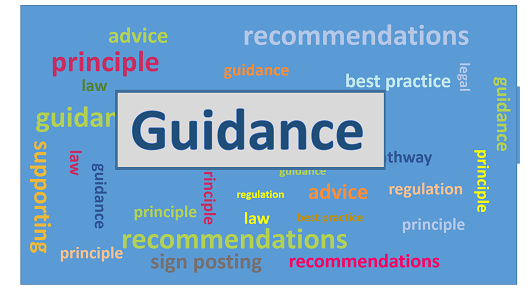Safeguarding News for January 2026
Dear Colleague
Take a glance out of your window and its not hard to believe that with over 40 days of rain in the UK since the turn of the year, it has actually rained every day in 2026!
Hopefully we can brighten the outlook with some good news in our February newlsetter reviewing the key headlines from January 2026.
There has been a significant change to the historically challenging subject of DBS applications for the self-employed, plus the announcement of the Government's consultation on restricting social media use and the banning of phones in schools.
We also highlight the landmark advertising ban on junk foods online and the time-dependent advertising on tv.
Stop Press!......
There are still a handful of places available on two of our Open House courses scheduled for March. Places are limited so if you would like to attend either of these sessions you will need to act fast.
The first Open House course is Working Together on 11th March at 10am, aimed at all those who lead or deputise on safeguarding for their organisation and is applicable to professionals across education, health, social care, police and other key services
The second is the Open House Managing and Leading on International Safeguarding course on 18th March at 10am, suitable for those who lead on safeguarding in all sectors delivering services overseas; from health care, leisure and education, through to charities and small community groups.
Legislative Changes for DBS Applicants
DBS checks for self-employed people and personal employees
Legislative changes came into force on 21 January 2026 that now allow self-employed individuals and personal employees to apply for Enhanced and Enhanced with Barred List(s) DBS checks for the first time.
This is good news for self-employed workers and also parents, carers and others who hire people to help them at home, tutor their children and other work.
The information below is for self-employed individuals and personal employees.
A self-employed person is an individual who works for themselves rather than being employed by an organisation. For example, a private maths tutor who offers one to one lessons to students in their homes.
A personal employee is someone employed directly by a private individual to deliver services either to them or a member of their family. For example, someone with a Personal Health Budget may directly employ an individual as a carer – this person would be a personal employee.
Please note SAFEcic does not offer this service, only some DBS Umbrella groups can do these checks so select Self-employed in the “Filter by specialist services” box at Find an umbrella body.
Stay informed - follow SAFEcic on social media:
| |
|
|
|
Safeguarding Supervision
"Lead practitioners should have access to high-quality supervision.” – Working Together to Safeguard Children.
Being a Designated Safeguarding Lead (DSL) or Leading on Safeguarding in any organisation is one of the most demanding, isolating, and emotionally taxing roles, carrying immense responsibility. Without the right support, it can feel overwhelming. Supervision isn’t a luxury, it’s essential.
Professional safeguarding supervision helps DSLs and safeguarding teams stay resilient, confident, compliant and effective. It strengthens  decision-making, reduces stress, and ultimately creates safer communities.
decision-making, reduces stress, and ultimately creates safer communities.
Why choose SAFEcic?
- Tailored support: 1:1 or group sessions
- Flexible delivery: in-person or online (Zoom)
- Your schedule, your way: ad hoc, monthly, half-termly, termly, or annual
- Cost-effective: discounts for bulk bookings (20+)
Our supervisors are multi-agency professionals with extensive experience supporting educators, charities, managers, and volunteers.
Invest in your team. Protect your community. Safeguarding the safeguarders isn’t optional, it’s essential.
To find out more, email This email address is being protected from spambots. You need JavaScript enabled to view it. or click here
Professional Boundaries Training
Designed for managers who will gain an understanding of the concept of the duty of care and the code of conduct required when working with children, young people and adults who may be at risk.
We look at issues when personnel challenge professional boundaries and debate possible scenarios and the actions that need to be taken when there is a concern that professional boundaries have been breached.
The course is designed for managers of all those who work or volunteer directly, with children, young people, adults at risk and/or their families or carers. All delegates must already have current Safeguarding training certificates in place, as relevant to their role, prior to attending this live 2 hour course via Zoom.
current Safeguarding training certificates in place, as relevant to their role, prior to attending this live 2 hour course via Zoom.
The course includes a digital resource pack and certificate of attendance or each delegate, valid for three years.
For further information click here
Effective Safeguarding Record Keeping
Designed for those who Lead on Safeguarding and their Deputies, the session defines the meanings of confidentiality, consent, information sharing, privacy, mental capacity, record storage, safeguarding record keeping retention periods, data protection and UK GDPR in relation to those records
keeping retention periods, data protection and UK GDPR in relation to those records
meanings of confidentiality, consent, information sharing, privacy, mental capacity, record storage and retention periods, data protection and UK GDPR in relation to safeguarding record keeping.
All delegates must already have a current Leading on Safeguarding training certificate in place before attending this course.
For further information click here
Single Central Record
Designed for personnel involved in managing and reviewing the SCR in regulated educational settings, in line with Ofsted and KCSIE 2025 expectations.
This live 2 hours course is thorough, detailed and fully up to date.
For further information click here
Working Together
Designed for professionals who Lead or Deputise for Safeguarding across education, health, social care, police, charity and other key services and aimed at strengthening your multi-agency safeguarding working. This course equips delegates with the knowledge and skills to collaborate effectively and put the child at the centre of every intervention. The course covers key legislation, guidance and local Safeguarding Partnership procedures, while developing your ability to reflect the voice of the child in all assessments and plans.
Safeguarding Partnership procedures, while developing your ability to reflect the voice of the child in all assessments and plans.
This training is essential for those committed to high-quality, child-focused, multi-agency work.
SAFEcic's Other Products and Services
Safeguarding Rapid Review Service
 (including Ofsted, CQC and Charity Commission regulated organisations) to gain external, expert insight and support to help their organisation attain the highest level of safeguarding culture, policy, procedures and practice.
(including Ofsted, CQC and Charity Commission regulated organisations) to gain external, expert insight and support to help their organisation attain the highest level of safeguarding culture, policy, procedures and practice.A Rapid Review takes just two hours of management time via Zoom or Teams and the price includes preparation of a high-level assessment report and an action plan to efficiently and cost effectively address any identified issues. Find out more or book a Rapid Review
Some of SAFEcic' most popular offerings:
The SAFEaward
The SAFEaward is a process available to all SAFEcic Members with provision of a self-audit tool that has been designed to help test your organisation's safeguarding arrangements.
The process includes an expert review upon submission and members who attain the SAFEaward are issued with a certificate recognising excellence in safeguarding and are invited to use the SAFEcic logo in their publicity.
Many SAFEaward accredited organisations display their certificates in reception areas which are highly visible to visitors and in many cases are viewed as a significant differentiator.
SAFE Membership
In addition to free access to the SAFEaward submission process, SAFE Membership offers an attractive array of benefits to any size of organisation, spanning many sectors.
One of the key drivers for many organisations is the provision of access to downloadable template policies and documents that allow our clients to quickly create appropriate safeguarding policies and procedures, dramatically reducing the time it takes to create robust and workable rules and guidance for their organisations.
Other key elements integral to a SAFE Membership include:
- Up to date policies for child and adult safeguarding - CQC, Ofsted and Charity Commission compliant templates and downloads, including handy referral flowcharts and good practice guidelines, all constantly updated to reflect the latest legislation and best practice guidance
- Expert support for safeguarding concerns or questions about best practice
- Discounts for as long as the membership remains valid on all online training and open house courses, plus discounted public liability insurance from Access Underwriting.
To find out more or to purchase membership for your organisation click here. Prices start from just £60 per annum
Safeguarding AuditsSAFEcic offers both Desktop and On-site Audits that include comprehensive policy reviews, recruitment and record keeping processes, personnel interviews and safeguarding walks to audit premises, activities and services.
The expert SAFEcic team has been providing safeguarding audits and pre-inspection audit services for over 25 years. We offer them for a wide range of organisations including charities, businesses, faith groups, leisure, health and education. Find out more.
Training Schedule
Our latest training schedule is listed below and feel free to share this email with your colleagues and they too can join our newsletter database.
To sign up simply click here.
Live Zoom Training with SAFEcic experts
Working Together
View available dates
Professional Boundaries Training
View available dates
Effective Safeguarding Record Keeping
View available dates
Single Central Record (SCR). Managing, Reviewing and Updating
View available dates
Blended Learning; self-paced online courses plus live Zoom training session
Leading on Child and Adult Safeguarding View available dates
Standard Child and Adult Safeguarding View available dates
Safeguarding: Trustees’ legal responsibilities View available dates
Safer Recruitment Training View available dates
Managing and Leading on International Safeguarding View available dates
SAFEcic's free hub resources by setting are available through the SAFEcic.co.uk main menu. Alternately you can bookmark the links below:
Education | Dental | Charities | GP & Primary Medical Services | Fath Groups | Entertainment & Leisure | Working Overseas |
Guidance

1. Prosecutors ready to charge new Channel crossing offences
From Monday 5 January 2026 prosecutors in England and Wales have been able to charge those involved in small boats crossings with new offences that make it illegal to supply items such as engines and those who endanger the lives of others whilst crossing the Channel.
Guidance issued to its lawyers by the Crown Prosecution Service sets out what they need to prove to charge suspects with new offences contained in the Border Security, Asylum and Immigration Act 2025.
While arriving in the UK without authorisation or helping others to do so have been crimes for more than 50 years, the new offences are a response to the changing character of immigration crime and how modern gangs operate.
Prosecutors work with law enforcement agencies including Immigration Enforcement, the National Crime Agency, and police forces to build the strongest cases.
The new crimes include handling, supplying or disposing of items that are for use in immigration crime such as pumps to inflate vessels or engines. Offenders face up to 14 years in prison on conviction for such offences.
Collecting information that is of use to those planning an illegal crossing is made a criminal offence for the first time punishable with up to five years in prison. The research can include looking at weather reports or tide times to identify a favourable time to launch. Those on small boats who endanger the life of others while on the water can be punished with up to six years in prison.
A new offence of advertising illegal small boat crossings online will come into force in the next few months and carries up to five years in prison.
2. Financially motivated sexual extortion: guidance for further education professionals
Globally there has been an increase in reports of children and young people being victims of financially motivated sexual extortion, often referred to in the media as ‘sextortion’.
The National Crime Agency’s CEOP Education, in partnership with UK Safer Internet Centre, have created guidance for further education settings in response to this threat.
Inquiries, Reviews, Audits, Research, Plans, Consultations and Responses and Actions

1. Supporting safeguarding partners to discharge their local child protection arrangements
The Children’s Wellbeing and Schools Bill (the bill) is a key step towards delivering the government’s opportunity mission to break the link between children’s background and their future success.
The child protection measures strengthen multi-agency responses to significant harm. Clause 3 creates a new duty for safeguarding partners – local authorities, police and integrated care boards – to establish multi-agency child protection teams (MACPTs).
Regulations will be subject to consultation and robust Parliamentary scrutiny with the aim for them to come into force in late 2027, subject to royal assent.
For more information, please see Multi-agency child protection teams: regulation-making powers policy paper
2. Prosecutors are working on the highest ever number of hate crime cases as referrals from police hit record levels.
The Crown Prosecution Service’s (CPS) latest performance data for July to September 2025 released on January 15 shows it received 4,358 cases from police which have been flagged as having a hate crime element. This is a 14.7 per cent increase on the previous quarter – April to June 2025 – and 2.8 per cent more than the same period in 2024.
Prosecutors charged 88.1 per cent of hate crime cases during the three months. In total 4,079 prosecutions were completed during this time, 85 per cent of which resulted in a conviction. Four out of five convictions received a hate crime uplift in the length of the criminals’ sentencing.
Racially motivated hate crimes make up 3,098 of the total hate crime flagged referrals, with homophobic cases at 911 and religiously motivated crimes at 193.
The CPS will continue to monitor data trends and performance, and work with partners to better understand and respond to any shifts in offending patterns.
The CPS has also responded to the government's initial hate crime review to identify where the law can be strengthened to enhance our ability to prosecute, deter offenders and achieve justice for victims.
3. Government launches consultation on children's social media use and bans phones in schools to protect young people's wellbeing and ensure safer online experiences.
A consultation will identify the next steps in the government’s plan to boost children’s wellbeing online, ensuring they have a healthy relationship with mobile phones and social media.
The proposals will build on the government’s broader action to ensure every child gets the best start in life, including a revised curriculum and better skills training.
Immediate action will include Ofsted checking school mobile phone policy on every inspection, with schools expected to be phone-free by default thanks to today’s announcement.
Amid concerns that young people’s lives are dominated by too much time in front of devices, the government will support families by producing evidence-based screen time guidance for parents of children aged 5 to 16. This is in addition to guidance for parents of under-fives that will be published in April.
Ministers will examine the most effective ways to go further to ensure children have healthy online experiences, building on the world-leading Online Safety Act.
Regulatory

Ofsted
Children not always recognised as domestic abuse victims in their own right, inspectorates warn
The 4 inspectorates, Ofsted, the Care Quality Commission (CQC), His Majesty’s Inspectorate of Constabulary and Fire & Rescue Services (HMICFRS), and His Majesty’s Inspectorate of Probation (HMIP), jointly carried out inspections across 6 local authority areas to look at the response to children who are at risk from, or are victims of, domestic abuse. Inspectors considered children as victims of domestic abuse if they have seen, heard or experienced the effect of the abuse. But today’s report finds that practice across police, health and social care services in some local areas remains focused on adults’ needs and risks, and is insufficiently focused on the needs and risks of children.
Read the full report: The multi-agency response to children who are victims of domestic abuse
The report also warns of significant variation in how well children’s experiences are captured and how clearly the risk posed by perpetrators of domestic abuse is understood and managed by children’s services, police and probation services. In some local areas, there is insufficient training for professionals, such as the police and social workers, on domestic abuse and its impact on children, and the understanding of coercive control is particularly limited. This means children do not always get the right help and protection at the right time.
Information held by different agencies about children, adult victims and perpetrators is not always systematically shared or drawn together by the network of professionals involved with children. Concerningly, this limits professionals’ ability to form a complete picture of the risks posed to children.
Medicines and Healthcare products Regulatory Agency (MHRA)
MHRA issues new guidance for people using mental health apps and technologies
New advice on using apps and other digital tools to support mental health was published by the Medicines and Healthcare products Regulatory Agency (MHRA) on 27 January, as part of free online resources developed with NHS England for the public, parents, carers and professionals who use or recommend these tools.
More people in the UK, particularly young people, are turning to digital tools for mental health support. From symptom-tracking apps to virtual reality therapies, these products are now widely available and often used alongside NHS and community care, but it is not always clear which are reliable, safe or right for an individual. The new guidance aims to help people make more informed choices and know what to do if something doesn’t feel right.
Ofcom
Ofcom launches investigation into X over Grok sexualised imagery
The UK’s independent online safety watchdog, Ofcom, has today opened a formal investigation into X under the UK’s Online Safety Act, to determine whether it has complied with its duties to protect people in the UK from content that is illegal in the UK.
There have been deeply concerning reports of the Grok AI chatbot account on X being used to create and share undressed images of people – which may amount to intimate image abuse or pornography – and sexualised images of children that may amount to child sexual abuse material (CSAM).
Worthy of Note

1. Landmark junk food ad ban to protect kid’s health
Children and young people will be protected from exposure to junk food advertising on TV and online as new regulations come into force to help tackle childhood obesity.
From 05 January, adverts for less healthy food and drinks have been banned on television before 9pm, and online at all times.
This decisive and world-leading action by this government is expected to remove up to 7.2 billion calories from children’s diets each year, reduce the number of children living with obesity by 20,000 and deliver around £2 billion in health benefits over time.
Evidence shows advertising influences what and when children eat, shaping preferences from a young age and increasing the risk of obesity and related illnesses. The ban targets the media children and young people use most at the times they use it.
At the start of primary school, 22.1% of children in England are living with overweight or obesity and this rises to 35.8% by the time they leave. Tooth decay is the leading cause of hospital admissions for young children (typically ages 5-9) in the UK.
2. Rise in ‘million-pound placements’ as vulnerable children with additional needs are housed illegally in caravans, holiday camps and AirBnBs
Second report into illegal children’s homes by Children’s Commissioner shows one year on, vulnerable children are still being housed in caravans, holiday camps or AirBnBs – some for as long as three years.
Number of illegal placements costing £1 million per child rises, despite these settings being unable to provide safety or care – at an estimated total cost of £353 million to the taxpayer.
Most children placed in illegal homes have mental health or additional educational needs – more than half have Education, Health and Care Plans.
Reason to Remain Vigilant

1. Man who assisted suicide through sale of substance is jailed
A man who assisted suicide by selling a substance to four people via an online forum has been jailed.
Miles Cross, 33, from Wrexham, set up a business and began selling the substance via an internet discussion forum after joining the online site in July 2024.
Interacting under a pseudonym, he posted that he had obtained the necessary paraphernalia for suicide by the chemical method and posted a photograph of the drug.
He also posted a QR code which linked to his bank account and allowed people to order the substance directly from him and pay via that account.
To prove the offence of encouraging or assisting the suicide of another person, the CPS needed to show that Cross committed an act capable of encouraging or assisting suicide with the intent that a suicide or assisted suicide was the result.
2. A man who abused multiple children has been jailed for six years
Adam McLaughlan, 34, of Penkridge, was sentenced at Stafford Crown Court on 06 January after he was previously found guilty of 14 counts of sexual assault of a girl.
The abuse happened over a number of years in Staffordshire before the survivors bravely came forward and told the police about what happened.
Officers from Staffordshire public protection unit (PPU) worked tirelessly to support the survivors and to build the evidence needed to secure a significant number of charges against McLaughlan.
At an earlier court hearing, he denied all of the charges put to him. But, because of the strength of the investigation and the bravery of the survivors, the jury deemed him guilty on 14 counts.
As part of his sentencing, McLaughlan was also served with an indefinite Sexual Harm Prevention Order (SHPO), placed on the Sex Offenders Register and served with a restraining order against the survivors.
If you’re a survivor and you feel ready to talk to us, call 101 or use Live Chat on Police website
3. Former Nazareth House nuns and retired support worker guilty of non-recent child abuse
Two former nuns and a retired support worker have been convicted of abusing vulnerable young people at children’s homes more than 40 years ago.
Carol Buirds, 75, Eileen McElhinney, 78, and Dorothy Kane, 68, were found guilty of subjecting multiple victims to cruel and unnatural treatment between 1972 and 1981.
The offences took place at two homes in Lasswade and Kilmarnock, both run by the Catholic order The Sisters of Nazareth.
The prosecution presented multiple strands of evidence including verbal accounts from former residents, an ex-staff member and a social worker.
Following a five-week trial at Edinburgh Sheriff Court, Buirds, who was known as Sister Carmel Rose, was found guilty of 13 charges including assault to severe injury.
4. Man who planned to drug and rape children given life sentence
A man from London, who planned to travel overseas and rape children as young as six, has been jailed for life.
Edward Gratwick, 68, from Mitcham, was arrested at Stansted Airport on 7 March 2025 as he attempted to board a flight to Bucharest, Romania.
He was identified by officers from the National Crime Agency after an overseas law enforcement partner shared intelligence about a UK national, who had been contacting another individual to try to arrange a meeting to sexually abuse a nine-year old girl.
In the online chat, the pair had also been planning to drug the girl with GHB so she would not remember anything.
Officers identified Gratwick and urgently deployed to arrest him when it became known he was flying out of the country. Overseas law enforcement officers had already identified and arrested the other individual, and put in place safeguarding measures for three children.
In October 2025, Gratwick was found guilty of 38 charges including arranging or attempting to arrange the commission of a child sex offence, attempting to engage in sexual communication with a child, distributing indecent images of children and possessing indecent images of children.
At Guildford Crown Court on 23 January Gratwick was jailed for life and told he will serve a minimum of 19 years and 46 days behind bars.
Finally
Report Fraud has launched
The City of London Police, the national lead force for fraud, last week announced the full public launch of Report Fraud - a new national service designed to transform how victims and businesses across England, Wales and Northern Ireland report cyber crime and fraud, and how law enforcement and industry respond.
Cyber crime and fraud are now the most common crime in the UK, accounting for around 50 per cent of all offences and costing the economy billions of pounds each year. Cyber-enabled crime and fraud continues to grow in both scale and sophistication, targeting individuals, small businesses and major organisations alike. Report Fraud has been created to meet this challenge head-on, providing a single, modern national gateway for reporting and intelligence that will strengthen the collective response of policing, government and the private sector.
Report Fraud is the most significant evolution of our national capability. It provides, for the first time, a single, modern national reporting, triage and intelligence platform for both cyber crime and fraud, enabling the City of London Police to lead policing’s 4Ps response – pursue, protect, prevent and prepare - at a national level. Through the new service, intelligence will be assessed and disseminated across forces, serious and complex cases will be identified for specialist investigation, and victims will be directed into a consistent national standard of care and support.
The service also reflects the City of London Police’s position at the heart of the UK’s financial centre, with unparalleled access to industry, regulators and international partners. This proximity enables real-time collaboration, faster disruption of criminal networks, and a stronger collective defence of the UK’s economic security, supported by specialist capabilities and training delivered through the force’s Economic and Cyber Crime Academy.
More than just technology, Report Fraud is the result of one of the largest transformation programmes ever undertaken by the City of London Police. Built from the ground up around the victim journey, it brings together the reporting of both cyber crime and fraud in one place for the first time, making it quicker, clearer and more supportive for people and businesses to come forward - and ensuring that every report counts, helping to protect others.



